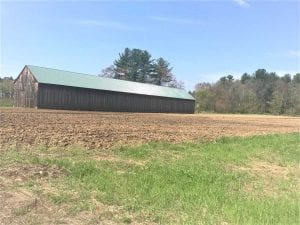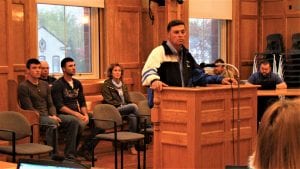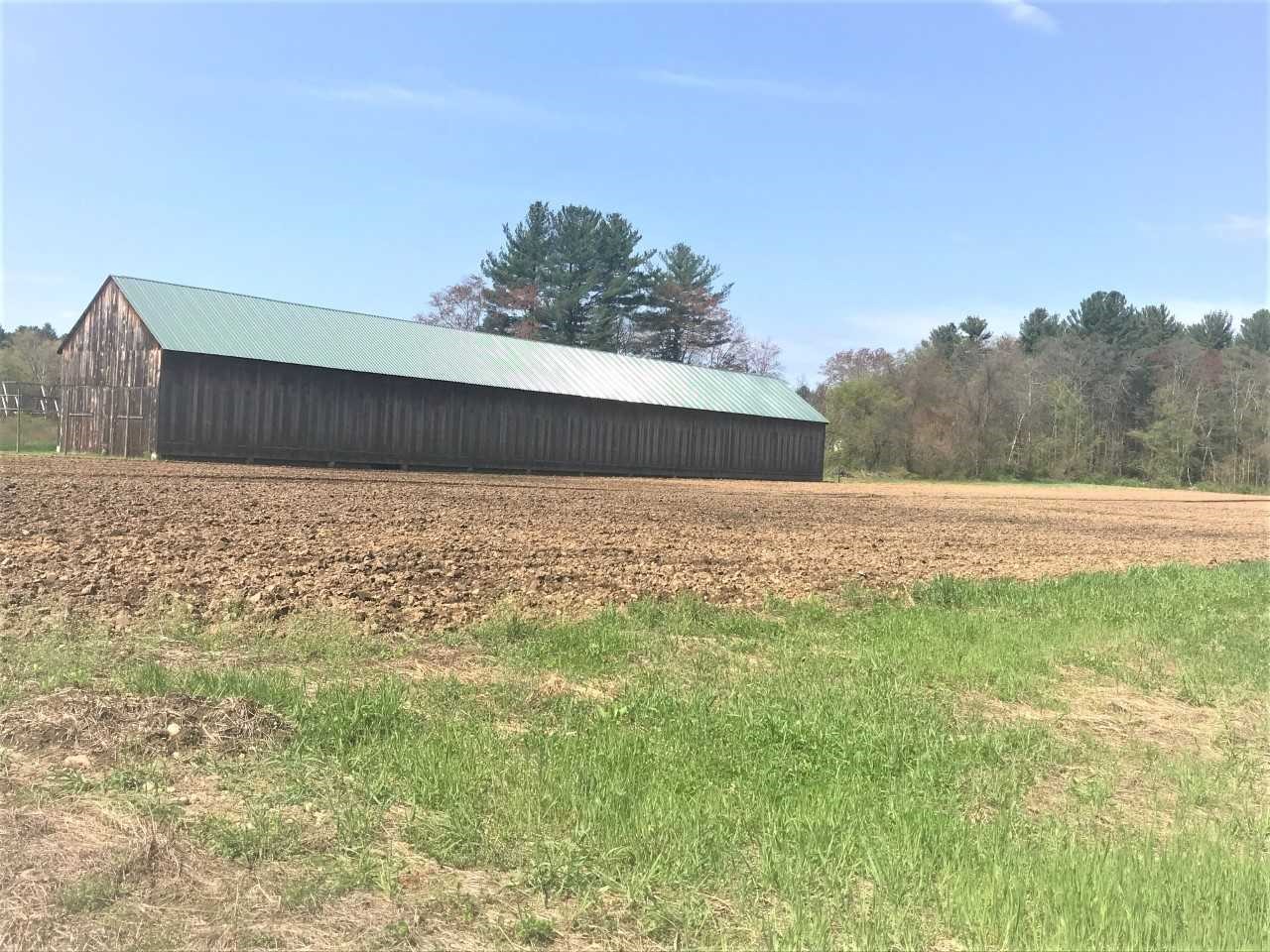
Tobacco barn on Crane Avenue. (Photo by Hope E. Tremblay)
WESTFIELD – Despite opposition from neighbors and several city councilors speaking as residents, the Planning Board granted a site plan approval for a seasonal farm labor camp on a 71-acre tobacco farm on Crane Avenue on Tuesday.
Responding to questions, owner Robert Hinckley confirmed that the housing for up to 12 workers would have four parking spaces, and that workers would be shuttled back and forth to the main 100-acre farm at 48 Crane Ave., since they would be working both fields. He said the camp could not be located on the main farm because of the flood plain.
Planning Board member Cheryl Crowe asked whether they would house 12 workers, and Hinckley said up to 12, but probably six to eight workers during growing season.
Robert Goyette asked City Planner Jay Vinskey whether there was availability for a sewer permit, and Vinskey said he had no more information about that. Goyette commented that even if the board approved the site plan, the Hinckleys still had “other hoops to jump through,” including state approval to build on agricultural-restricted land.
Chair William Carellas asked for questions from the public in the continued hearing.
At-large City Councilor Matthew Emmershy, who lives on Fowler Street, said he was speaking as a resident. He asked the committee if they had received his email comments following the previous meeting on March 5, which he proceeded to read.
Emmershy questioned whether the site plan was a by-right use. He acknowledged that the Superintendent of Buildings Carissa Lissee had determined its by-right use as a single family residence, but said a labor camp is not a single family use.
Emmershy said the zoning for a single family dwelling is one designed and occupied for use by one family. He suggested that the camp would be a lodging house with more than four residents that would require a special permit. He also said that the Planning Board had the authority to deny the site plan, or refer the plan to the City Council for a special permit.
Emmershy also cited the agricultural restriction on the land, which requires a permit from the state to build. He said the location and size of the proposed structure, a 36 x 60 square-foot building, does not fit the standard and quality of the neighborhood, one of the findings for a site plan.
Goyette said the ultimate decision resided with Lissee as code officer for the city. Emmershy countered that she makes the initial decision. He said he had met with Lissee, who said International Building Code (IBC) defines the structure, which supersedes local zoning laws.
Vinskey said according to the Building Inspector, the building qualifies as a single family home and the use falls under agricultural, which triggers a site plan.

Farm owner Robert Hinckley answers questions at the Planning Board on Tuesday. (Photo by Amy Porter)
Resident Peter Swords of Highland Avenue said as a single family dwelling, it would seem that a resident would be living in the house. He also said last week, there were deer in the field and an otter in the river. “It would be a shame to disrupt the flow of animals,” he said, adding that the Barbara Swords Park abuts the property, and residents may no longer have access to it. “Things are getting ripped away that we’ll never get back,” he said.
Crowe responded that she sympathized with him, but the Planning Board had to go by what the law says, and by the Superintendent of Building’s ruling, who she said was the authority. “They have that right to put this here,” Crowe said.
Ward 3 Councilor Andrew K. Surprise of Main Street, who also spoke as a resident, questioned whether the camp would be blocking access to open space, and suggested looking at Article 97 regarding open space. Crowe responded that the site permit was for agricultural land, which is completely different.
Ward 4 Councilor Michael Burns, also speaking as a resident of Kylie Lane, said as far as the footprint of the neighborhood, the camp “definitely doesn’t fit.”
Cynthia Swords Smith of Highland Avenue said the camp is in a priority habitat area. “This is not okay for the neighborhood. Something’s wrong here, and it’s not okay,” Smith said.
Goyette said the plan would go before Conservation, but Vinskey said not necessarily, because the coordinator had indicated informally that they had no jurisdiction. A motion was then made to close the public hearing.
During the discussion, Planning Board member Richard Salois said based on the fact that the land has always been agricultural, and the site plan is for agricultural use, it should be supported. “Farmers in this town need to be supported,” he said.
Planning Board member Philip McEwan said if approved, the site plan and the building permit could be appealed. He said he didn’t believe the camp met two of the standards for approval in a site plan, including intent of the zoning, and general harmony with the surrounding neighborhood. He said based on those findings, he made a motion to deny the site plan.
McEwan also questioned whether the building would be considered an accessory building, subordinate to the main use of the property as agricultural, which would not have the same by right status. Vinskey was asked and said he had no opinion to offer on the suggestion, except the interpretation from the Superintendent of Buildings.
While the Planning Board members considered McEwan’s take on the camp as accessory to agricultural use, ultimately they said they viewed it as a primary structure, and voted 6 to 1 against McEwan’s motion to deny. A positive vote of 7-0 was then taken for approval of the site plan.








